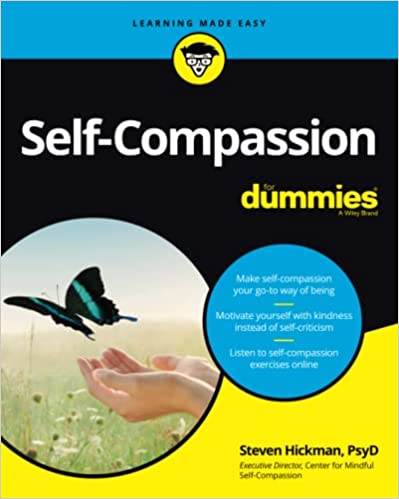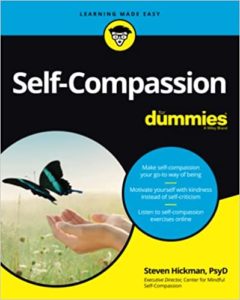Interview with
Dr. Steven Hickman
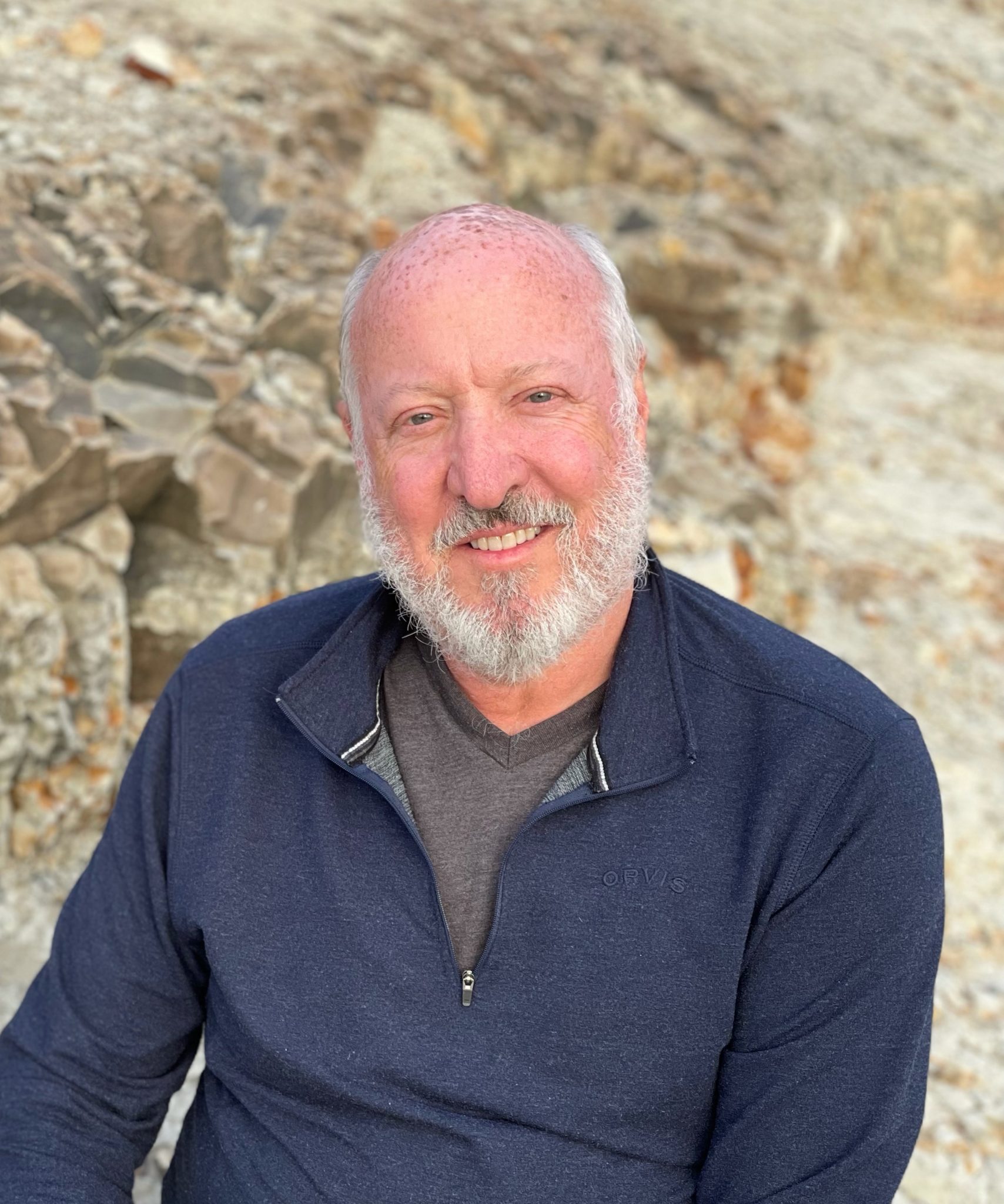
Steven Hickman, PsyD
Dr. Steven Hickman is the Executive Director of the non-profit Center for Mindful Self-Compassion. He is a Clinical Psychologist and Retired Associate Clinical Professor in the University of California at San Diego School of Medicine, as well as the Founding Director of the UC San Diego Center for Mindfulness. Steve co-developed the Mindful Self-Compassion Teacher Training program and has participated in the training of over 1800 MSC teachers around the world. Steve has co-taught the 8-week and intensive MSC program many times around the globe and is also a Certified teacher of Mindfulness-Based Stress Reduction (MBSR) and trains teachers of that program. He is married and has three young adult children, affording him ample opportunity to practice what he teaches!
Parts of the interview have been edited for clarity and length.
How would you define self-compassion? Why is it important to practice it?
I think the simplest way to describe self-compassion is the capacity to treat yourself the same way you would treat a dear friend when they struggle, suffer, fail, or fall short. We’re often quite good at being kind to other people’s suffering. When your friend fails a test or has a hard time with a work situation, we tend to be warm, kind, and supportive, and provide whatever is needed. But when we have the same experiences, somehow our inner dialogue towards ourselves tends to be just the opposite and we tend to beat ourselves up. We feel that something is uniquely wrong, or we demand perfection of ourselves.
In other words, self-compassion is cultivating and expressing the care and kindness that we normally have for others but directing it towards ourselves. This sounds logical but it’s actually quite challenging to do for most of us. There’s a growing body of research that suggests self-compassion is associated with resilience. Resilience and a number of other positive qualities seem to be related to this quality of self-compassion.
Do you think that there’s a greater need for self-compassion during this pandemic?
I think that the need for self-compassion hasn’t changed but the awareness of where it could be helpful has become a little more obvious. We feel more alone. We may perhaps find ourselves noticing how hard we are on ourselves, how demanding we are, and maybe a little more distracted by our inner dialogue. More and more folks are discovering this to be true for themselves because of the isolation. They’re starting to notice the tone and tenor of their inner critic. There is a whole range of explanations for why this is, but the more we become aware of our inner critic, the better understanding we will have of the ways our inner dialogue can cause suffering in our lives and limits us. The pandemic certainly magnified that.
The other piece of this is the interaction and synergy between mindfulness and self-compassion. The qualities of mindfulness and self-compassion are really interrelated. The capacity to be present to our own experience and the willingness to be kind to ourselves in difficult moments requires us to be truly present with our difficult experiences. In other words, mindfulness and self-compassion actually equip us take on the difficulties that we face, whether it’s difficult emotions, relationships, thoughts, moods, and all sorts of things.
The synergistic effects between mindfulness and self-compassion allows us to confront and manage our difficulties more effectively. Our natural tendency is to push away difficulties or try to avoid pain, which is not necessarily a bad thing, but often becomes the very thing that causes us to wall ourselves off from our experiences. Our ability to navigate difficult experiences is compromised when we’re not accustomed to fully encountering them. Our habitual reaction patterns tend to be to avoid them or try to control them. Mindfulness and self-compassion practices can empower us to be present to our full experience, make better choices, take better care of ourselves, and move in more valued directions. We can become skilled at tolerating our own inner experience- good, bad, or indifferent.
“Self-compassion actually allows us to sustain our compassion for others because we’re being compassionate to ourselves as well.”
What is the Center for Mindful Self-Compassion and what is its mission?
Its best to begin with the founders of the Center for Mindful Self-Compassion (CMSC), Drs. Chris Germer and Kristin Neff. Dr. Chris Germer is an expert clinician who has seen the value and of mindfulness and self-compassion for many years. Dr. Kristin Neff is a world-renowned researcher and pioneer of self-compassion. She’s a social psychologist at the University of Texas at Austin and has studied self-compassion her whole career. Through her single-handed hard work and line of research, she has made self-compassion a prominent area of study in psychology.
The two of them came together and created a program called Mindful Self-Compassion. They basically looked at each other and said, “Wow we’ve really seen the value of self-compassion, we should not just study what self-compassion is, but actually teach people to be more self-compassionate.” And the Mindful Self-Compassion (MSC) course was born.
Dr. Neff and Dr. Germer taught the program in various forms and gained popularity so fast that they realized they needed to have a way to get this program out into the world and train other people to teach self-compassion. They then formed the nonprofit Center for Mindful Self-Compassion ten years ago. The mission of this nonprofit was to disseminate the practice of self-compassion to create a more self-compassionate world, partially through disseminating the Mindful Self-Compassion program which meant training people to teach it, and to educate people about self-compassion. Somewhere along the way, they brought me into the mix to help them run this nonprofit center.
There are close to 3000 teachers of the Mindful Self-Compassion program around the globe and it’s being taught in roughly 40 different languages. We have a staff of around 20 people, and because we’re a virtual center we don’t have a physical centralized location. We have grown substantially over time, all while maintaining service to this vision of a more self-compassionate world.
Can self-compassion be learned independently, or do you need formal training?
It’s an interesting thing because it’s a capacity, much like mindfulness, that we all have to a degree. It’s not like teaching someone how to paint with watercolors, where there is no natural capacity. Self-compassion is a quality we have as humans because we all inherently want to be happy and free from suffering. We also have the capacity to be aware and to be present, and also to tend to ourselves when we struggle and have difficulty, just like when we tend to others. When others are having difficulty, compassion is hardwired into us. It’s really about developing a capacity we already have and it can be done in a variety of ways.
We already know from experience that just reading about self-compassion can actually help some people become more self-compassionate. In the first randomized-controlled trial of the Mindful Self-Compassion program that Drs. Germer and Neff taught, results indicated that people in the self-compassion group showed greater increases in self-compassion, quality of life, resilience, and overall compared with the control group. Interestingly, although the results between the two groups clearly showed that the self-compassion course was effective, they noticed that even people in the control group who never participated in the course somehow showed significant improvements in their levels of self-compassion. When they looked further into this, they discovered that people knew that the study was about self-compassion, and when they were assigned to be in the control group which was a waitlist-control they started reading up on self-compassion. So quite a number of participants did a bit of study on their own about self-compassion and apparently became more self-compassionate as a result. We like to joke that just reading the books is clinically proven to improve self-compassion! People can read the wonderful books written by Dr. Neff, such as The Mindful Self-Compassion Workbook. It’s very much a self-help, self-guided course on self-compassion. My own book Self-Compassion for Dummies is also self-guided and designed to help people develop self-compassion.
Conversely, there are a lot of us that really need the structure and format of a course, something that has sort of regular expectations. A little social support, guidance, and personalized attention allows people to really tap into their capacity to be more self-compassionate. This is where a course like Mindful Self-Compassion could be really beneficial for people and up to this point, the research backs it up.
“We often say we give ourselves compassion not to feel better, but because we feel bad.”
As the founding director of UC San Diego Center for Mindfulness, how do you see academic medicine embracing self-compassion?
As I was establishing the center, I saw how mindfulness was starting to become accepted by academic medicine, which in the early years it was kind of viewed as a weird thing. Once colleagues learned I was running the Center for Mindfulness, they would come up to me after faculty meetings and say things like, “You’re that guy that does mindfulness, right? Well, don’t tell anyone but I meditate too.” It was like this dirty little secret that people were practicing mindfulness and they didn’t want their colleagues to know they were doing anything too far out.
We have since come a long way. When I left UC San Diego, mindfulness was integrated into the medical school curriculum for all of the medical students coming through. There was quite an embrace of mindfulness and compassion across the university- as well as many other universities. There are a lot of great programs out there with physicians that incorporate mindfulness into the training. They’ve been supportive of the wonderful work being done.
Self-compassion is newer in the healthcare realm, but I was recently reading about burnout in the health care profession and learned that approximately one in three physicians are experiencing burnout at any given time. This was a study published in 2020, I imagine given the pandemic that the number is probably higher now as a result. Mindfulness can help to some degree in terms of reducing burnout, but I think self-compassion, the capacity to meet ourselves when we’re struggling and having difficulty, and recognizing that we’re having a hard time, is quite powerful. It allows us to transcend those kinds of difficulties and ultimately develop that resilience and the ability to bounce back from difficult circumstances
Over time self-compassion will become more woven into medical training and good medical care, largely because I think people in the medical profession are generally in their field because they’re compassionate people. The individuals who go into healthcare appreciate the value of compassion. What they may not realize is that they need to include themselves in the circle of compassion. Sometimes you hear these statements that you can’t be compassionate to other people unless you’re compassionate to yourself. That sort of sounds good on the surface at first, but if you if you poke at it a little bit, you realize it’s essentially not always true. There are a lot of people who are amazing at being compassionate to other people but treat themselves terribly. In other words, we can be kind to other people while simultaneously beating ourselves up for a while.
The difference is that self-compassion allows you to continue to care for other people because you’ve included yourself in that circle. Self-compassion actually allows us to sustain our compassion for others because we’re being compassionate to ourselves as well. We’re putting gas in our own tank so that we can help put the gas in other people’s tank.
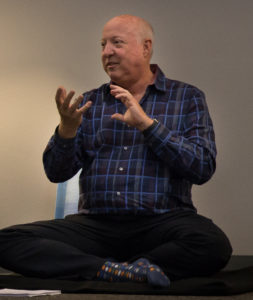
Do you think self-compassion could ever be a frontline treatment for mental health conditions?
I don’t tend to think of either mindfulness or self-compassion as a treatment, per se. It’s sort of like physical fitness; you can’t treat something with physical fitness. The more self-compassionate, mindful, and resilient we become, the more we’re able to ameliorate difficulties that become depression, anxiety, PTSD, and related disorders.
It’s an active ingredient more than it is a treatment. You can’t practice self-compassion to get depressed. You can practice self-compassion to ultimately help you move through depression and come out of it, but it’s not intended to be a treatment. It’s more like a prevention or a wellbeing approach that strengthens your capacity to navigate challenges as opposed to fixing a problem. When you start to practice mindfulness or self-compassion to get an outcome, you’re stuck right from the beginning. It’s about cultivating a different relationship with difficult experiences rather than changing them.
We often say we give ourselves compassion not to feel better, but because we feel bad. If your kid has the flu, you might bring them a cold cloth, give them a hug, or say sweet things to them to comfort them in some way, but not because you’re actually treating the flu. You’re not an antiviral treatment. You are doing this because the child is suffering. Compassion and mindfulness are really the same in that they allow us to navigate that territory with greater ease, effectiveness, and resilience in the midst suffering.
What is your ultimate vision for the field of self-compassion?
I have to go back to this physical fitness analogy. If you talk to a random person on the street, they will know that there is a connection between being physically fit and good health or longevity. Everybody understands that at some level, yet we don’t have that level of understanding yet for mindfulness and compassion, but we’re getting there. My vision is that self-compassion becomes second nature, that it’s embedded in the way we raise our kids, the way we build our society, the things we ask of people in their professions- everything! So, it’s a lofty goal and is probably not going to happen in the next year or two, but we’ll be working on it.
New Book
by Dr. Steven Hickman
Being kind to yourself might sound simple, but self-compassion can change your life dramatically (and most of us are WAY kinder to others than to ourselves) Self-Compassion For Dummies will help you discover self-critical thoughts and self-defeating behaviors that are holding you back from fulfilling your potential and explore how you can learn to work around these things to find your way to more joy and satisfaction. We often think being hard on ourselves will help motivate us to be better people, but Dr. Steven Hickman’s review of the research finds that just the opposite is true. When you learn to love and appreciate yourself completely (as an imperfect human with messy feelings and uncomfortable thoughts), you free yourself up to achieve great things. This book will show you how!
Enjoy? Share with your friends
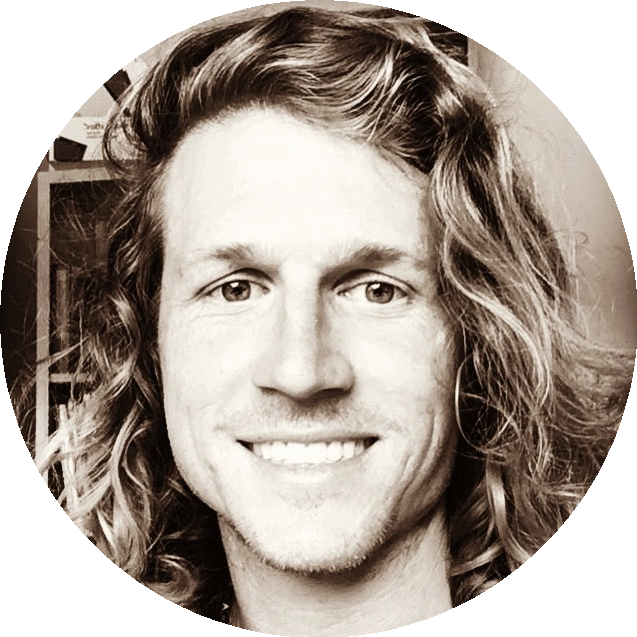
Michael Juberg
Michael is the Founder & Chief Editor of the Science of Mindfulness.
Related Posts
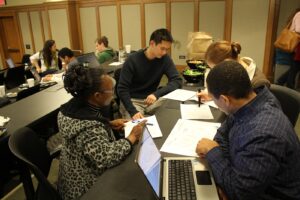
African American Mindfulness Researchers Make Vital Contributions
The growing recognition of transdisciplinarity’s powerful nature offers researchers valuable opportunities for collaboration

Moving Beyond the Headlines
Does the scientific content that we read always mean what it claims?

The Clark Unitive Effect: Bridging the ‘Valley of Death’ from Research to Practice
The growing recognition of transdisciplinarity’s powerful nature offers researchers valuable opportunities for collaboration

What is Mindfulness-based Resilience Training (MBRT)?
Also known as MBRT, this intervention helps first responders navigate their work more mindfully

Oppositional Cultural Practice®: OWN IT! FEEL IT! LIVE IT! LOVE IT!
Mindfulness practices like critical analysis can reveal the mental formations behind these tools.
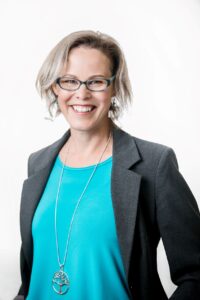
Interview with Dr. Linda Carlson
Dr. Linda Carlson holds the Enbridge Research Chair in Psychosocial Oncology, is Full Professor in Psychosocial Oncology in the Department of Oncology, Cumming School of Medicine at the University of Calgary, and Adjunct Professor in the Department of Psychology.

Mediating Mindfulness-Based Interventions with Virtual Reality in Non-Clinical Populations: The State-of-the-Art (Failla et al., 2022)
By providing an immersive, engrossing, and controlled visual and auditory experience in which participants can practice mindfulness techniques, Virtual Reality (VR) systems can create immersive, ecologically valid, first-person experiences that can even tap into physiological reactions that align with real-world experiences.

Trait Mindfulness and Relationship Satisfaction: The Role of Forgiveness Among Couples (Roberts et al., 2020)
The researchers were interested in understanding if forgiveness acts as a mechanism by which mindfulness relates to relationship satisfaction. They speculated that being mindful would allow individuals to be aware of their own and their partners’ emotions in a non-judgmental and non-reactive way. The increased awareness would make people more forgiving of partner transgressions, thereby enhancing relationship satisfaction.

Exploring the Nexus between Mindfulness, Gratitude and Wellbeing Among Youth with the Mediating Role of Hopefulness: A South Asian Perspective (Ali et al., 2022)
Emerging studies are highlighting the effectiveness of mindfulness, gratitude and hopefulness as positive psychological tools in helping people cope with anxiety and stress. These practices have also been considered beneficial in enhancing psychological health and well-being.
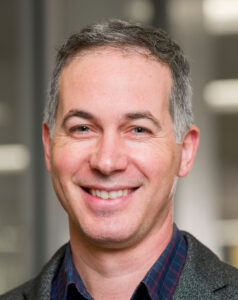
Interview with Dr. Sahib Khalsa
Dr. Khalsa is currently the Director of Clinical Operations at the Laureate Institute for Brain Research.
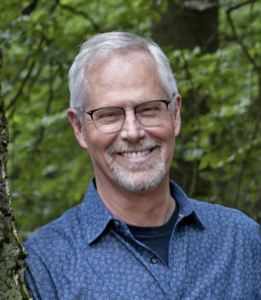
Interview with Dr. Christopher Germer
“…when mindfulness and self-compassion are in full bloom, they are nearly identical in a moment of suffering.”

What is Mindful Self-Compassion (MSC)?
Also known as MSC, this intervention teaches people to care for themselves as much as they care for others.
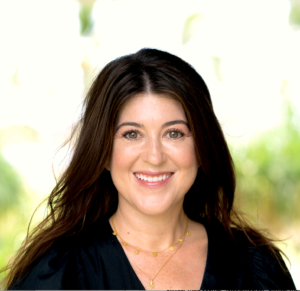
Interview with Dr. Erin Bantum
My work, over the past fifteen years has had a core theme of social support running through it, and I’d like to create an online mindfulness meditation intervention that includes a group component, such that people who have experienced cancer can meet and practice mindfulness meditation together.
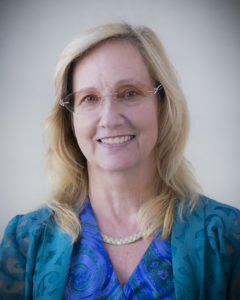
Interview with Dr. Amy Brown
I didn’t want them to needlessly struggle and suffer as much as I did, and mindfulness is one of those tools that definitely helps us all during this time. I’m helping them in the way that I wish I would have been helped.
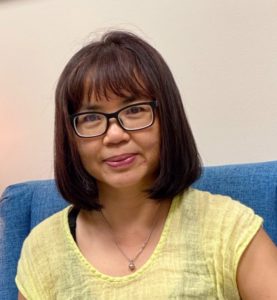
Interview with Dr. Thao Le
Ultimately, my intention is for it to be a service space to help students, faculty, staff, or anyone from the community to connect with themselves. Don’t we all need to pause?
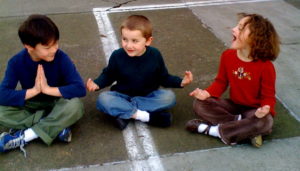
The challenges of bringing mindfulness into schools
After nearly three decades, a ban prohibiting public schools to offer yoga as an elective for grades K-12 has been overturned in Alabama.
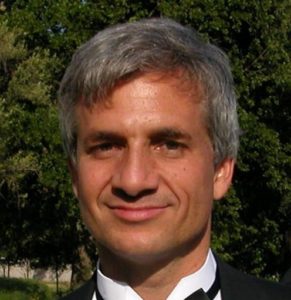
Interview with Dr. Philippe Goldin
Philippe Goldin, Ph.D. is an Associate Professor at UC Davis and leads the Clinically Applied Affective Neuroscience Laboratory.
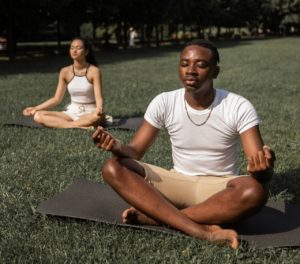
What is Mindfulness-Based Stress Reduction (MBSR)?
Mindfulness-based stress reduction, also known as MBSR, is an 8-week evidence-based group program that teaches participants how to cope with their pain and stress using mindfulness meditation and Hatha yoga techniques.

What is Mindfulness-Based Cognitive Therapy (MBCT)?
Mindfulness-based cognitive therapy, also known as MBCT, is a group-based treatment program … developed to prevent relapse in clinical populations with recurrent major depressive disorder (MDD).
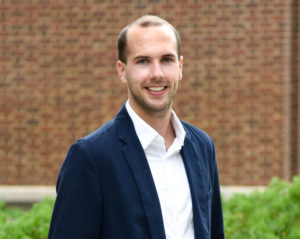
Interview with Blake Colaianne
Blake Colaianne is a former Earth science teacher turned contemplative researcher. He is currently a Ph.D. Candidate in Human Development and Family Studies at Penn State University. His research focuses on supporting adolescent development using both a culture of belonging in high schools and prevention and promotion programs that teach mindfulness and compassion skills.

What is Mindfulness-Based Stress Reduction for Teens (MBSR-T)?
The MBSR-T program (also known as the Stressed Teens program) was created in 2004 by Gina M. Biegel, MA, LMFT

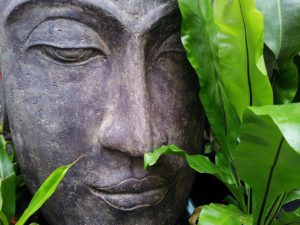
What is Mindfulness?
Rather than proposing a single definition, mindfulness might be better understood in relation to the phenomenology of the various contemplative traditions and practices that intend to develop mindfulness.
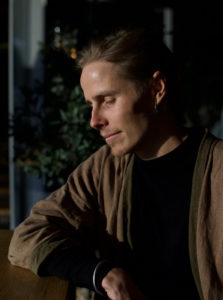
What is the Present Moment? Some Warnings about Hanging out in it, and a New Scientific Theory of Meditation
Ruben Laukkonen is a cognitive neuroscientist at the VU University of Amsterdam. His research focuses on sudden insight experiences and the effects of intensive meditation on the mind and brain. Using a combination of neuroimaging, machine learning, and neuro-phenomenology, Ruben is investigating some of the most rare states of consciousness accessible to human beings. He has published articles in leading journals, given talks at prestigious conferences, and has written on topics that range from artificial intelligence to psychedelics. Ruben has an eclectic contemplative background, including different meditation traditions such as Zen, Advaita, and Theravada.
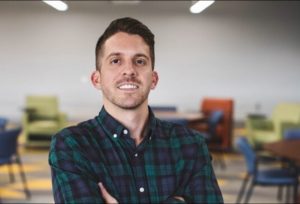
Interview with Michael Tumminia
Michael J. Tumminia is an avid meditator, researcher, and runner. He is currently a 3rd Year Applied Developmental Psychology PhD candidate at the University of Pittsburgh.

Your Brain is also Part of Your Body: Contextual and Contemplative Approaches in Physical Illness
Despite significant advances in the field of psychology due to increased research … the usual care of people with chronic medical conditions still often neglects the psychological issues associated with the physical dimension of the disease.
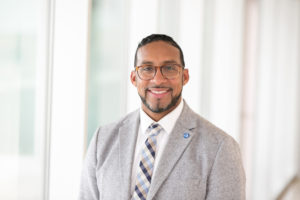
Interview with Dr. Juan Rios
“Whether you call it liberation, theology, transformative justice, mindfulness- we cannot separate those components of practice, all of those things are integrated. Integration brings peace, and peace within is key to embracing the other.”
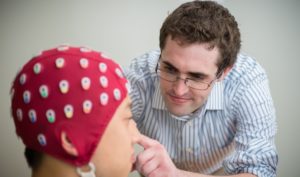
An electrophysiological investigation on the emotion regulatory mechanisms of brief open monitoring meditation in novice non-meditators (Lin et al., 2020)
Despite growing knowledge that mindfulness meditation can enhance emotional wellbeing, very little is known about how it all works. How exactly does the act of meditation help us deal with the emotional rollercoaster of everyday life? Is mindfulness training actually “transferrable” to real world situations? What’s going on in the brain? Can we even measure it?
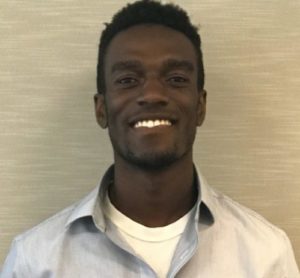
Interview with Grant Jones
Grant Jones (he/him) is an artist, contemplative, researcher, and activist. Currently, he is a 3rd Year Clinical Psychology PhD candidate at Harvard University and Co-Founder of The Black Lotus Collective.
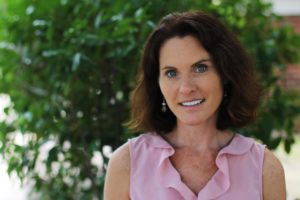
The Power of Their Own Breath
“We focus on concentration,” Jones says. “So rather than sharpening your focus, which is what happens when you get anxious, the goal is to relax your focus.” The ability to utilize your breath to calm your nervous system is the first step to teaching mindfulness.

Self-compassion, quiet self, and the brain (Liu et al., 2020)
How does self-compassion protect depressed adolescents? Quieting the self may be the key.

When Less is More: Mindfulness Predicts Adaptive Affective Responding to Rejection via Reduced Prefrontal Recruitment (Martelli et al., 2018)
A study led by Alexandra Martelli investigated whether more mindful individuals (based on self-report measure scores) would respond to social rejection with less distress and if certain neurological mechanisms in the brain’s prefrontal cortex can potentially explain the role of mindfulness in reduced social distress.
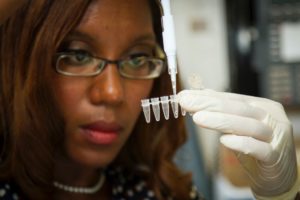
Brief mindfulness session improves mood and increases salivary oxytocin in psychology students (Bellosta-Batalla et al., 2020)
A research team from Valencia, Spain recently investigated the effects of a brief mindfulness-based intervention on both mood and biological markers on a sample of health professional students.

Neurophysiological and behavioural markers of compassion (Kim et al., 2020)
A new study by Kim and colleagues explored how compassion-based training can affect two self-regulatory styles and its relationship to neural, physiological, and behavioral responses.

Interview with Dr. Ilana Nankin – Breathe For Change
Dr. Ilana Nankin—the Founder & CEO of Breathe For Change—is an award-winning entrepreneur, teacher educator, and former San Francisco pre-k teacher committed to using wellness as a vehicle for healing and social change.
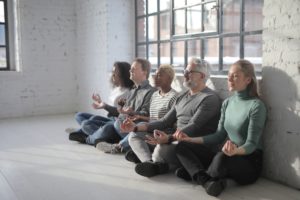
Yoga and Mindfulness as a Tool for Influencing Affectivity, Anxiety, Mental Health, and Stress among Healthcare Workers: Results of a Single-Arm Clinical Trial (Torre et al., 2020)
Torre and colleagues recruited 70 HCWs from two hospitals in Rome, Italy for a 4-week course in yoga and mindfulness.

Mindfulness Buffers the Impact of COVID-19 Outbreak Information on Sleep Duration (Zheng et al., 2020)
A team of researchers based in the perceived epicenter of the virus, Wuhan, China, recently tested whether a brief mindfulness intervention delivered through an app could be effective for reducing anxiety and protecting nightly sleep during the unfolding pandemic.

Intrapsychic Correlates of Professional Quality of Life: Mindfulness, Empathy, and Emotional Separation. (Thomas & Otis, 2010).
Mindfulness practices can enhance a therapist’s ability to intentionally and flexibly regulate attention as well as emotional reactivity which has been demonstrated to influence burnout.
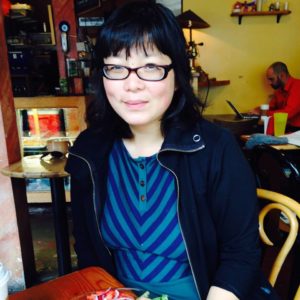
Interview with Dr. Helen Weng
Dr. Helen Weng is a clinical psychologist and neuroscientist who originally joined the Osher Center for Integrative Medicine in 2014 as a postdoctoral scholar in the Training in Research in Integrative Medicine (TRIM) fellowship. She is developing new ways to quantify meditation skills using functional magnetic resonance imaging (fMRI) and machine learning to identify mental states of body awareness during meditation.

Physician Anxiety and Burnout: Symptom Correlates and a Prospective Pilot Study of App-Delivered Mindfulness Training (Roy et al., 2020)
A new study investigated whether a brief mindfulness training designed to reduce physician burnout could be delivered through a smartphone app.
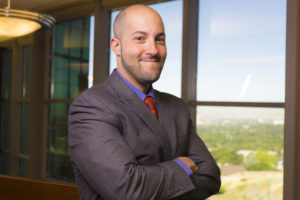
Interview with Dr. Eric Garland
Dr. Eric Garland, PhD, LCSW is Presidential Scholar, Associate Dean for Research, and Professor in the University of Utah College of Social Work, Director of the Center on Mindfulness and Integrative Health Intervention Development (C-MIIND), and Associate Director of Integrative Medicine in Supportive Oncology and Survivorship at the Huntsman Cancer Institute.
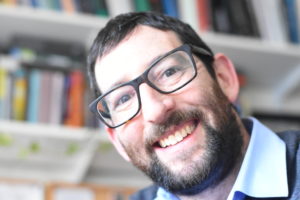
Interview with Dr. David Vago
David Vago is Research Director of the Osher Center for Integrative Medicine at Vanderbilt University Medical Center.
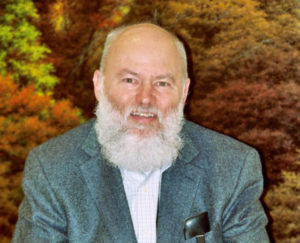
Interview with Dr. Jeff Brantley
Jeffrey Brantley, MD, is one of the founding faculty members of Duke Integrative Medicine, where he started the Mindfulness-Based Stress Reduction program in 1998.

Role of Yoga and Mindfulness in Severe Mental Illnesses: A Narrative Review (Sathyanarayan et al., 2019)
The current study reviewed the wider scientific literature for the role of yoga and mindfulness interventions in the treatment of severe mental illness.

A Randomized Controlled Trial Examining the Effect of Mindfulness Meditation on Working Memory Capacity in Adolescents (Quach et al., 2015)
The amount of research involving mindfulness interventions has grown exponentially; however, only in the last decade has mindfulness research involving adolescents rapidly increased.
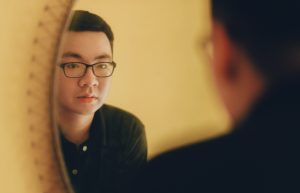
The Differential Moderating Roles of Self-Compassion and Mindfulness in Self-Stigma and Well-Being Among People Living with Mental Illness or HIV (Yang et al., 2016)
Mindfulness and self-compassion are theorized to disrupt the maladaptive repetition of negative thoughts and emotions for patients with chronic or mental illnesses, who are particularly susceptible to psychosocial distress.

The Emerging Trend of Mindfulness in Education
According to the Association for Mindfulness in Education, mindfulness can increase students’ emotional regulation, social skills, self-esteem, and organizational capacities.

Neural Stress Reactivity Relates to Smoking Outcomes and Differentiates Between Mindfulness and Cognitive Behavioral Treatment (Kober et al., 2016)
There is promising evidence that 70% of smokers would like to quit but less than 5% of unassisted attempts at quitting are actually successful.
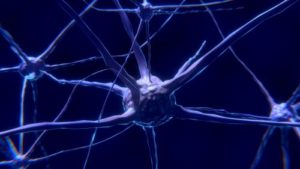
Mindfulness-Based Relapse Prevention for Stimulant Dependent Adults: A Pilot Randomized Clinical Trial (Glasner et al., 2016)
In a recent pilot study by Suzette Glasner, Ph.D. and her team at the Integrated Substance Abuse Programs at the David Geffen School of Medicine at UCLA, they evaluated the effects of Mindfulness-Based Relapse Prevention (MBRP) on reducing relapse susceptibility among stimulant-dependent adults receiving a contingency management (CM) intervention.

Long-term Mindfulness Training is Associated with Reliable Differences in Resting Respiration Rate (Wielgosz et al., 2016)
A major implication of the study suggests the distal effects of intensive retreat practice on respiration rates, a benefit not necessarily conferred by a brief, but full-day meditation session.

Examination of Broad Symptom Improvement Resulting From Mindfulness-Based Stress Reduction in Breast Cancer Survivors: A Randomized Controlled Trial (Lengacher et al., 2016)
Researchers are exploring mindfulness-based interventions as a long-term treatment options to address the multitude of symptoms after cancer has been treated.

Epigenetic Clock Analysis in Long-term Meditators (Chaix et al., 2017)
While the scientific study of mindfulness has exponentially increased over the past few decades, only recently has the scientific community focused on the effects of meditation training on biological aging.
